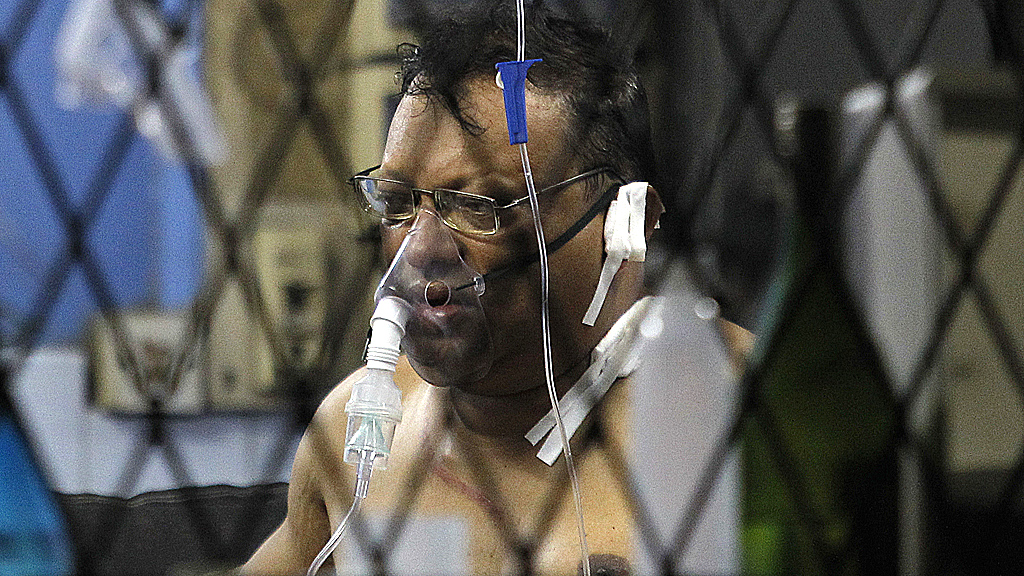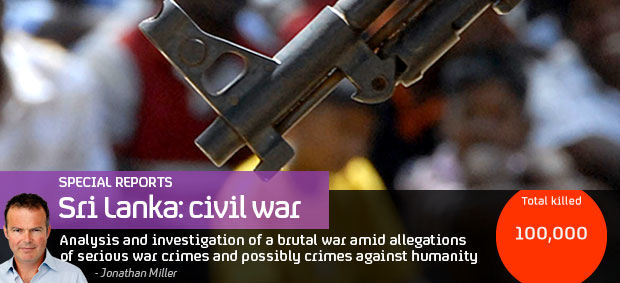Sri Lankan journalist shot and wounded
Gunmen shoot and seriously wound a Sri Lankan investigative journalist, drawing the island’s human rights record sharply back into focus.

The Sunday Leader’s Faraz Shaukatally, 52, is undergoing further tests ahead of surgery after being shot by three unidentified gunmen on Friday night.
The newspaper’s editor Sakunthala Perera said the journalist was shot while he was on the telephone discussing a story due to appear in this week’s edition.
Police said three men entered his house in Mount Lavinia, broke into his room and opened fire. The journalist was rushed to hopsital with bullet wounds in his neck.
Though political violence has eased since Sri Lanka‘s army crushed a three-decade Tamil separatist rebellion in May 2009, international human rights groups say problems persist, including abductions and attacks on media and government critics.
Channel 4 News exclusive: UN 'deeply disturbed' by shooting
Sunil Jayasekera, secretary of the Sri Lankan rights group Free Media Movement, said: “The government’s failure to prosecute those who have been responsible for attacks on media in the past has paved the way for this nature of incidents to continue. At least if the government could take action against those who are behind the shooting, that will help to prevent attacks in future.”
An editor at The Sunday Leader was killed in January 2009 and other members of staff have also been attacked, though no arrests have been made.
Today, the newspaper’s website reported that Sri Lanka’s President Mahinda Rajapaksa has ordered a special investigation into the shooting incident.
UN criticism
Sri Lanka’s rights record has been subject to criticsim over alleged excesses during the military’s final phase in defeating Tamil Tiger seperatists. Rights groups say the military killed thousands of minority ethnic Tamil civilians in the final weeks of the conflict.
A report presented by a court of inquiry on Friday said the army did not shell civilians at the close of operations and blamed Tamil Tiger rebels for the deaths.
Jonathan Miller blog: Sri Lanka - skeletons in the cupboard?
Yet the UN High Commissioner for Human Rights, Navi Pillay, demanded that Sri Lankan authorities allow international experts to help resolve issues of alleged wartime crimes.
The government however rejected allegations of mass killings and was dismissive of Ms Pillay’s calls for investigation, alongside her calls for the demilitarisation of the Vanni region.





